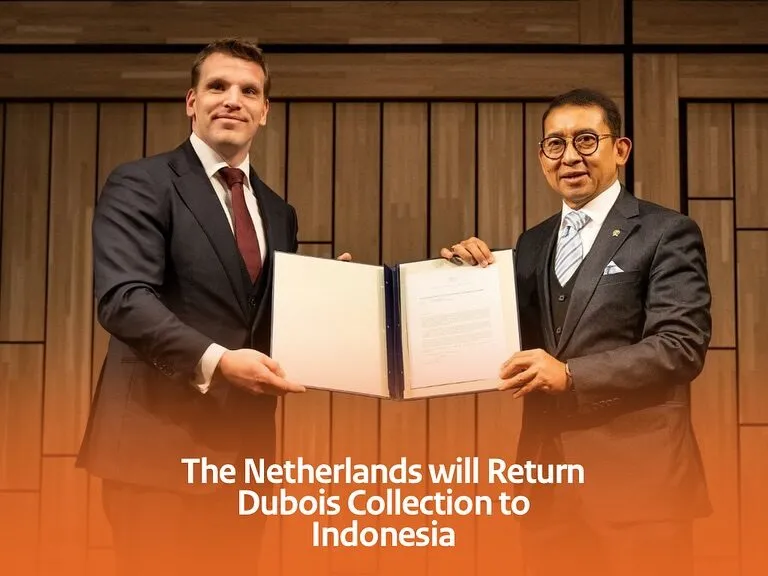The restitution process took more than three years, in July 2022 Indonesia filed an official claim. The processing of previous requests for restitution of other colonial collections and looting art took less time.
After the announcement of the refund, committee chair Lilian Gonçalves-Ho Kang You stressed when asked that the case of the Dubois collection was complex and called for extensive research necessary. Marcel Beukeboom, director of museum Naturalis, which managed the Dubois collection for one month, also cites the thoroughness of the investigation as an explanation for the long duration of the process. “It was also complicated. You can perhaps imagine that in a collection of 40,000 pieces, 28,000 of which are from Indonesia.’
But several experts have a different reading. Provenance researcher Jos van Beurden sees a clear difference in Naturalis’ attitude compared to other museums. Naturalis has always been on the emergency brake. They wanted to keep the collection to themselves and stretched it as long as they could. In the end they lost the case, rightly so I think.’
‘The museum seems to have consciously trained the process’, says historian Caroline Drieënhuizen. ‘That was also said by them with so many words, ‘we are going to do the origin research in detail’.’ Dubois expert Paul Albers, who was previously associated with Naturalis as a guest researcher, says that then-director Edwin van Huis was not imbued with the seriousness of the Indonesian origin request. ‘He and others at the museum had the idea that it would not be returned. The Dutch State would never let this happen as the owner of the collection.’
Director Beukeboom does not recognize this sharp criticism. ‘This is from before my time at Naturalis, I only got this from conversations with others. But my impression is not that the museum was unwell-whelming. Researchers have been given full access to our collections.” However, Beukeboom points out the importance of the Dubois collection for Naturalis. ‘That sentiment certainly lives here in the organization.’ He claims to be behind the refund but acknowledges that it also hurts.
In terms of restitution, Jos van Beurden expects the Dubois return to create a precedent that will be followed up. Paul Albers also sees it that way. ‘For example, Naturalis also manages the collection of Raden Saleh, which also contains fossils. They have the same natural historical value as a large part of the Dubois collection.’ Caroline Drieënhuizen believes that the Netherlands fell far behind in terms of the restitution of fossils and other natural objects compared to neighboring countries. ‘In that sense, this will change the Dutch dynamics.’
Lilian Gonçalves seems less sure of that. ‘This refund is not the answer to all questions’, she emphasizes. ‘Our advice was really only about the Dubois collection. Claims about other objects or collections can again bring new aspects. In that regard, I am a lawyer of the order “in fact it is law”. What the future brings, the future must show.’


